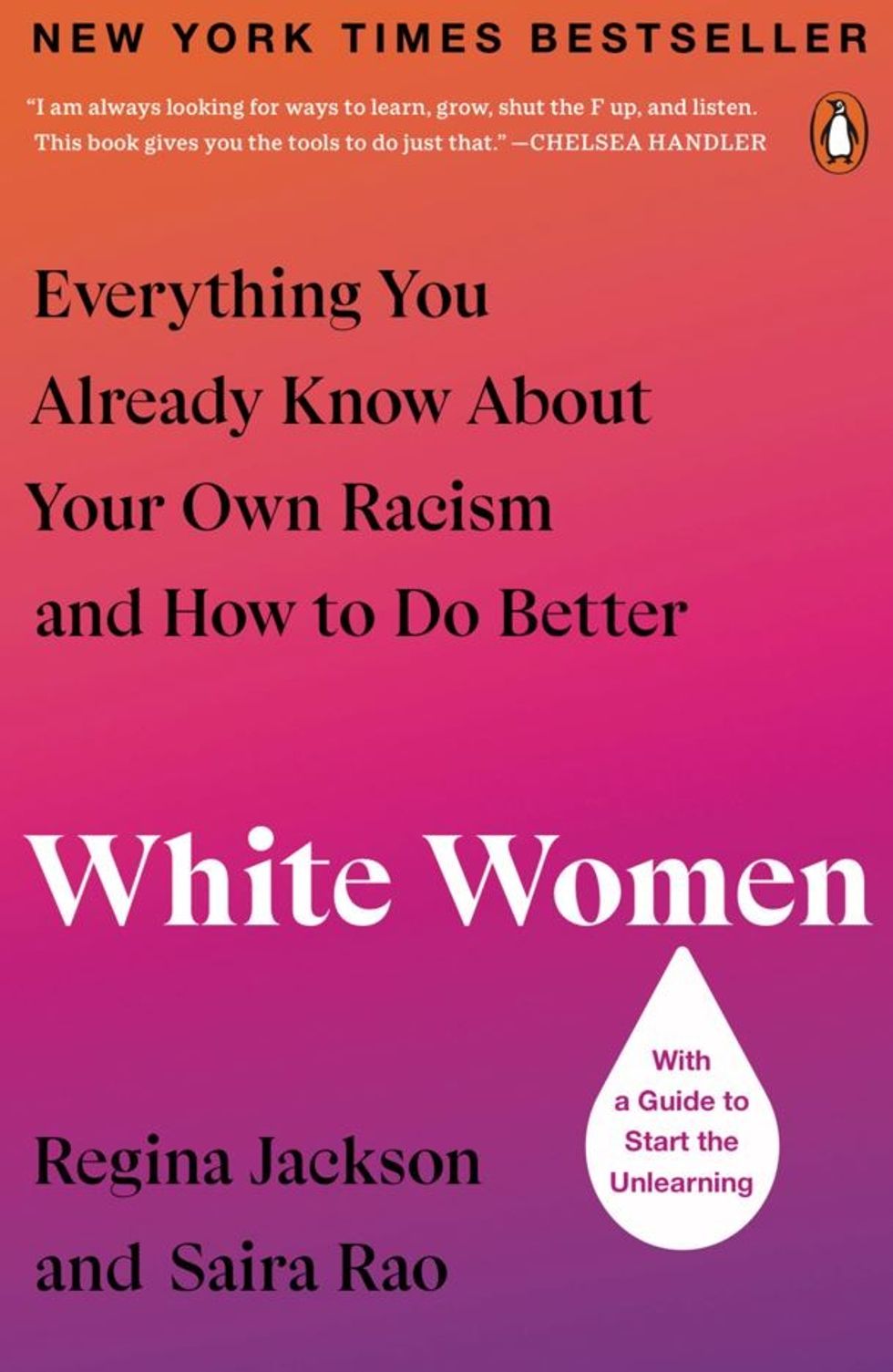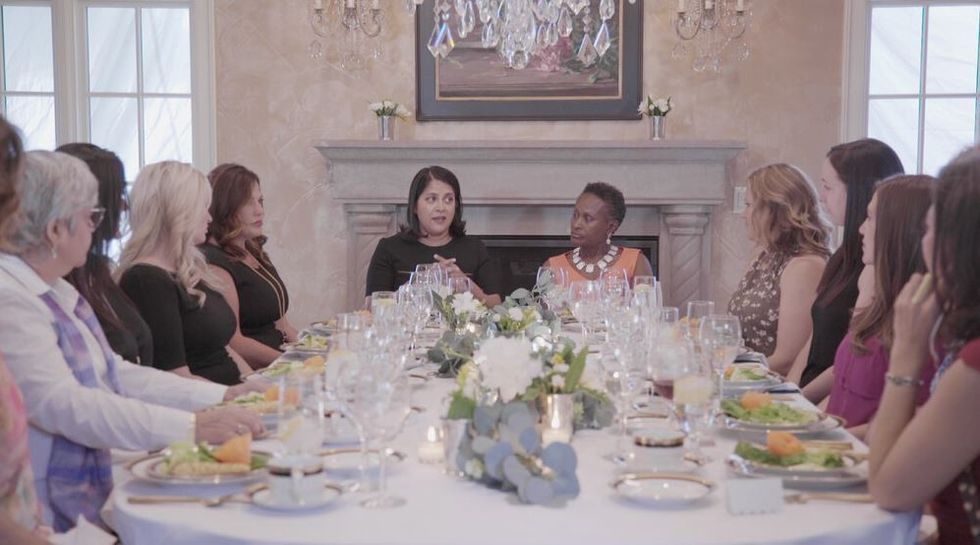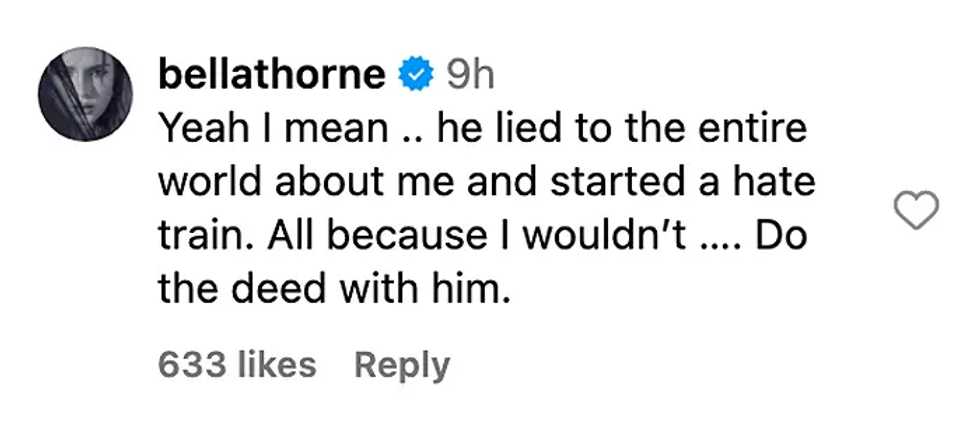“RAISE your hand if you are a racist.”
This is a question Saira Rao, an Indian American campaigner, poses at the start of the documentary, Deconstructing Karen.
It features the work of Race2Dinner, an initiative by co-founders Rao and Regina Jackson, a black American, whose aim is to ultimately dismantle white supremacy.
There is an uncomfortable silence as the camera pans around the faces of 10 white women sat around a dining table at a home in Denver, Colorado. Rao and Jackson are filmed sitting at the head of the group.
A hand goes up. Then a few more. A final hand is raised – it belongs to Rao.
“Indians are institutionally racist against black women,” she says.
Later, she adds, “I grew up as a white woman trapped in a brown woman’s body.”
Asked what she meant, Rao told Eastern Eye, “It’s the internalised white supremacy. We’ve all been put through the sausage factory of white supremacy – white is what everyone is aspiring to be.

“And I did it beautifully. I was very much a white woman with brown skin. I was the biggest and the best ‘coconut’ there was,” she said, referring to the pejorative term to describe ethnic people said to ‘behave like white people’.
Rao and Jackson were in London last month to screen their documentary in the city (July 13-14) and in Bath (16).
Race2Dinner began as an idea to have white women pay to have uncomfortable conversations about their privileged place in society, how it is harming everyone – especially people of colour – and how they can help change that status quo.
Rao is the daughter of Indian immigrants from south India who moved to the US in the late 1960s. She grew up in Richmond, Virginia, where, she recalled, some 25 Asian families lived at the time.
“We were taught to be American and assimilate. And it was very clear that it was assimilating to white culture and not black culture. We just parroted what white people did – what we saw on TV, what we learned at school and what we saw socially.

“What does that look like? It looks like thinking we’re better than black people. The myth is, we’re somehow better than black people. And I bought it hook line and sinker, because – at least I’m not black.”
Rao trained to be a lawyer and had a career in Wall Street. She has also been a television producer and previously owned a book packaging company.
She ran for Congress in 2018 from Colorado in the Democratic primary and lost. It was during this campaign (which involved plenty of fundraising dinners) that she met Jackson. Following her defeat, the idea of Race2Dinner was born.
Deconstructing Karen features one of the first dinners from 2019. Rao said she Jackson have a more focused approach these days, with no more than four a year. All are sold out for 2023. Their aim is for this concept to be adopted outside the US – in Canada, the UK, Europe and also, India.
Rao said, “The reason our work has spread so fast and furiously is it’s so simple. All it is is to tell the truth and do it over dinner. And it will set you free. We hope very much these conversations continue here – in France, Germany, India; my goodness, India needs a big wake-up call around these conversations.”
India is a different beast, Rao said, describing how casteism, colorism and Islamophobia predated British colonial rule.
“I have family members who live in the US who – now – will acknowledge slowly and quietly anti-blackness, but will 100 per cent not acknowledge casteism. We all need to do the work.”
Since Rao’s defeat in the elections, (Democrat) Kamala Harris has become US vice-president. In recent months, with preparations underway for the 2024 presidential election, Indian American (Republican) Nikki Haley has thrown her hat in the ring to be the party nominee in a race that also includes her former boss and president, Donald Trump.
Rao did not hold back in her assessment of race relations in the US in recent years, and what the election of Harris means to black and brown people in America. “What has changed? Nothing, nothing has changed,” she said.
“If anything, Trump was a direct retaliation for having (Barack) Obama be president. And let’s be honest, Obama (a Democrat) was not awesome for black and brown people – the deporter-in-chief.”
Rao was referring to the allegation by some activists of the number of illegal immigrants removed from the US under the Obama administration. (Analysis by the Migration Policy Institute showed more than five million were removed or returned during the Obama administration, a number fewer than the more than 12 million people “deported” – either removed or returned – from the US during Bill Clinton’s time as president, and the more than 10 million were removed or returned during the George W Bush administration).
Rao added, “Kamala Harris, what did she do? One of the first things she did was go down to Central America, point to brown people and say, ‘do not come’.
“America’s becoming browner and browner – the census tells us that will happen in the next 40 years. Who cares? Who cares if we’ve not dismantled white supremacy, culture and colonialism and imperialism? It’s going to be a bunch of people who look like you and me doing the same s**t that white people have done? No, thank you.
“I think that Kamala Harris, Nikki Haley and Saira Rao, all of us – and I use myself in the third person because I don’t want to exceptionalise myself – are all flip sides of the same point.
“We all have come through the same factory. What is the difference? That one’s a Republican and one’s a Democrat?
“Under Joe Biden and Kamala Harris, we still don’t have Medicare for all. We still have police brutality. It was on Joe Biden and Kamala Harris’s watch that the Feds [informal term for federal law enforcement agencies] whipped Haitian refugees, there still ICE (US Immigration and Customs Enforcement) concentration camps.

“There hasn’t been a qualitative difference. It’s fiction. These partisan things are fiction. How was England super different pre-Boris Johnson? There’s been racism the whole time and we pretend that somehow it’s better to have a Democrat versus a Republican. There’s absolutely no difference and we are the fools who keep voting, voting, voting for more of the same.”
Another hard-hitting point in the documentary comes when Jackson asks for a show of hands of those who would trade places with a black person. Cue some squirming by the 10 women – ‘I don’t know the answer to that,’ says one participant, while another admits she would not do it. Jackson calmly reiterates her question. One hand goes up and it sparks a debate about the lived experiences of a black person versus those who married a mixed-race person and are raising mixed-race children.
Rao told Eastern Eye there was no penny-dropping moment to realise how prejudiced she was. Instead, she recalled that six or seven years ago, she began to be aware of the propaganda that she had been fed her entire life.
“It’s not just, ‘oh my goodness, I’m on the receiving end of racism and xenophobia and white supremacy, but I’m also on the giving end.’ I sit on the ecosystem, like everybody else.
“We all have benefits and burdens; we all have privileges – I have ablebodied privilege, I’m cis gendered, I’m straight, I have money.
“And so, and I’m not black, I have non-black privilege.

“Where does that put me? It means we have real obligations with our privileges. It is very important for all of us Asians to acknowledge this and to know where the power lies and where you sit, so you can mitigate the harm that you’re causing.”
Since the murder of black American George Floyd in May 2020 by white police officers, Rao said the conversation at Race2Dinner events have shifted, “in that the people are much more honest, humble and sincere and truly are there to work”.
“The white women there are ready to listen, they are ready to talk, ready to learn, ready to unlearn. I would say that our dinners now are far more productive and interesting and good.”
Following the dinner, the participants are invited to provide feedback and continue to join an online network where they “deconstruct” whiteness and build communities with each other.
In the film, Rao said, the one thing all white women want to do is “be nice”.
She told Eastern Eye, “White woman don’t have community with each other. They’re all in competition – who’s the smartest, who’s the skinniest, who’s the prettiest? Who makes the most money, where do the kids go to college? Sound familiar? Absolutely happens here. They hate each other. All they do is compete, they talk so much s**t about each other. And so ‘Race to Community’ is for them to actually build real friendships and community with each other.”
There are some uncomfortable moments in the documentary, but Rao is clear about their purpose.
She said, “These conversations are the most radical things any of us can do. So yes, of course, people are hostile about it. You’re gonna be mad. We’re used to people getting upset and uncomfortable, but I don’t feel uncomfortable. People keep saying it’s uncomfortable. I’ve no discomfort around having these conversations. But I used to, and it’s taken me time. I’ve had to sit in my discomfort and work through it.

“So when you feel discomfort, the invitation is to sit with it and use that as an opportunity to learn what it is that’s making me uncomfortable? Why is it making me uncomfortable and instead of rejecting it, and walking away, use it as an awakening, a tool for awakening. I promise you, once you work through that, it takes you to a different level and it sets you free. The more that you work through the discomfort, the freer you become.”
Towards the end of the film, Rao describes her sense of scepticism and her thoughts about shutting it down – unsurprising, given the (mostly online) hatred both she and Jackson experience.
Does she still hold that view?
“This movie took place in 2019. Here I’m in 2023. If you had told me four years later, we would have a book that’s now upwards of 100,000 copies in publication seven months out, and a movie that’s going viral globally, I would have not believed you.
“Our work is absolutely catching on in a way that none of us could have predicted four years ago. Is it thankless? No. Do I feel like constantly shutting down? Yes. Because I am here. I’m not with my children right now, I’m travelling all over the place. We still get trolled all the time.
“But the difference is, now we’re actually seeing the impact of our work among black and brown people.”
Rao said she and Jackson were blown away by the reaction at their first screening in London, when south Asian and black women came up to them and said, ‘We actually now have gotten brave enough to start speaking up. Your work has given us the confidence to change our lives.’
“So it is not thankless. That’s what makes this work so gratifying, and keeps Regina and me going in the end.”






 Actress Bella Thorne and Charlie Puth attend the Y100's Jingle Ball 2016Getty Images
Actress Bella Thorne and Charlie Puth attend the Y100's Jingle Ball 2016Getty Images  Bella Thorne's commentInstagram Screengrab
Bella Thorne's commentInstagram Screengrab  Charlie Puth performs onstage at an interactive global eConcert liveGetty Images
Charlie Puth performs onstage at an interactive global eConcert liveGetty Images  Bella Thorne and Mark Emms attend a red carpet for the movie "Priscilla"Getty Images
Bella Thorne and Mark Emms attend a red carpet for the movie "Priscilla"Getty Images Charlie Puth and Brooke Sansone attend the 10th Breakthrough Prize CeremonyGetty Images
Charlie Puth and Brooke Sansone attend the 10th Breakthrough Prize CeremonyGetty Images











